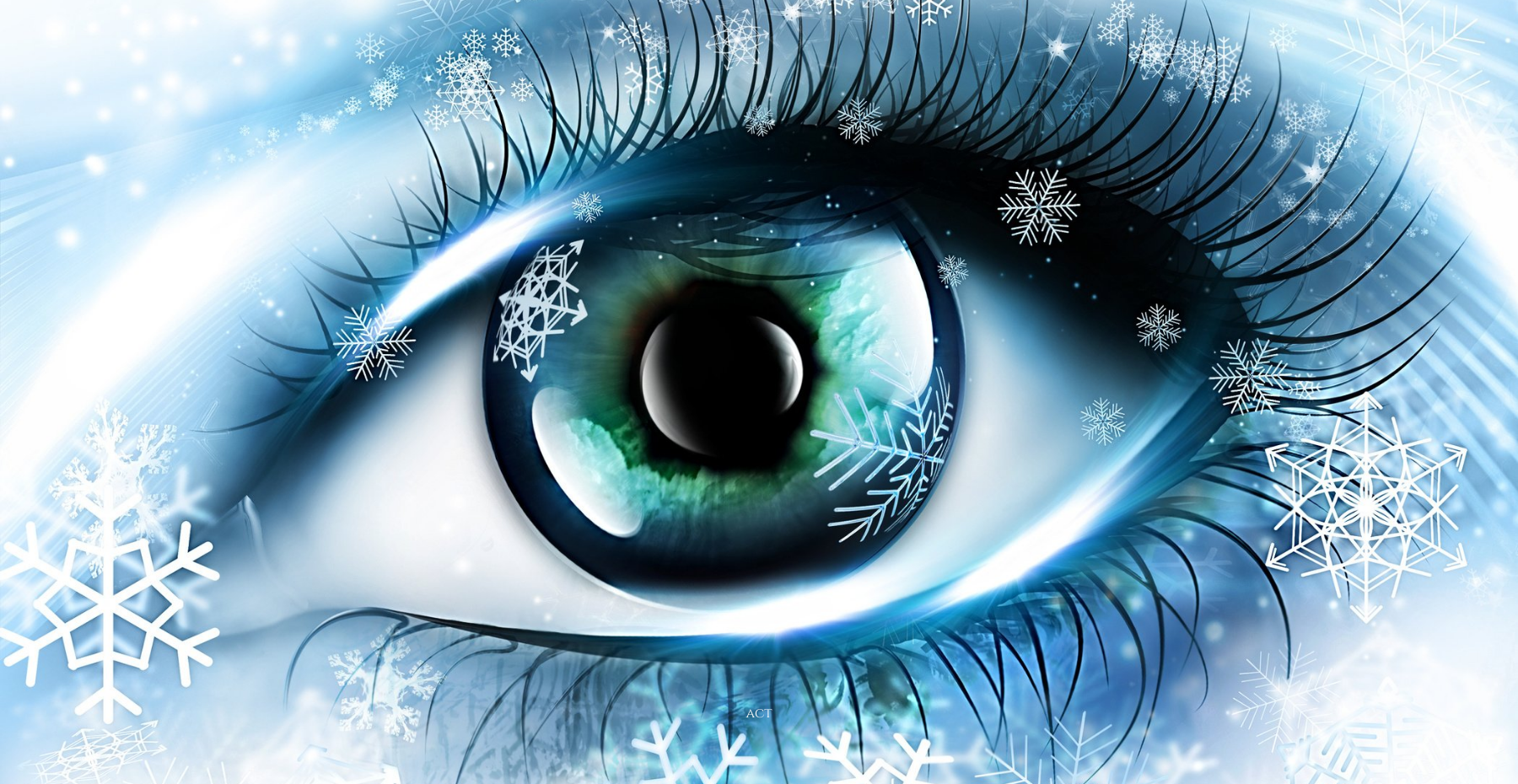How to Keep Your Eyes Protected During the Winter Months
Get tips to get keep your eyes protected during the winter:

Your eye health is something you should be maintaining on a daily basis, year-round. With that said, certain times of the year present specific dangers and risks to your eye health. Without taking the necessary precautions, you could put your eyesight and vision in harm’s way.
Things are no different in the winter. In fact, the cold winter months present a number of challenges for your eyesight and it requires proper maintenance throughout the season. Unfortunately, most people are either unaware of this threat or don’t know how to prevent it.
Don’t worry, we’re going to teach you everything you need to know about maintaining your eye health during the winter season – including the various threats your eyes face, the many eye diseases you may experience, and how to keep your eyes protected during the winter months.
Factors That Affect Eye Health During the Winter
The eyes work in miraculous ways and play a major role in our ability to live a quality life, but that doesn’t mean the eyes are perfect by any means and they’re actually quite vulnerable in the winter environment. By understanding what’s at stake, you can protect them from damage.
To ensure everyone is on the same page, we’re going to detail some of the most prominent factors that have a negative impact on eye health during the colder months – including dry air and cold air, increased exposure to UV rays, increased screen time, and more time spent indoors.
Let’s take a closer look at each factor:
Dry and Cold Air:
Many of us are aware that the winter months bring both dry and cold air. It’s why our lips are always chapped, why our skin is always dry, and why a lot of us can’t stand this season. More than that, dry and cold air stimulates tear evaporation and results in less moisture in the eye
UV Exposure:
UV exposure is nothing new to your eye. It’s exposed to ultraviolet rays (UV rays) on a daily basis, but this exposure is intensified during the winter, especially in snowy climates. This is largely due to the sun’s reflection on the snow, which results in higher exposure to UV rays.
More Time Spent Indoors:
Since the weather doesn’t satisfy everyone’s wants during the winter, many people elect to spend more time indoors. While this isn’t necessarily a bad thing, the increased exposure to heating systems can dehydrate the eyes and result in a number of eye problems and changes.
Increased Screen Time:
With people spending more time indoors during the winter months, it’s only right to assume that they’re spending more time in front of a screen – whether it be the phone, laptop, tablet, television, or any other device. Too much screen time can be damaging to your eye health.

Eye Diseases Often Experienced During the Winter:
Now that we’ve discussed some of the threats that our eyes are exposed to once winter arrives, you’re likely wondering what that means for your eyes. The truth is it could spell trouble in a variety of ways and those troubles can only lead to more vision problems if left untreated.
To further ensure everyone knows what’s at stake, we’re going to detail some of the most common eye and vision problems experienced during the cold temperatures – including dry eye syndrome, excessive tears (watery eyes), and snow blindness (photokeratitis). Let’s take a closer look!
Dry Eyes:
With how dry and cold the air is in the winter, it’s no surprise to see dry eyes on this list. The temperature drops, winds intensify, humidity decreases, and we’re exposed to central heating and other heating sources during the winter. These can all contribute to or worsen dry eyes.
Excessive Tears or Watery Eyes:
After talking about dry eyes, it might be weird to also see watery eyes on this list. When the eyes get dry and tear evaporation increases, the lacrimal glands near the eye respond by producing an excess of tears. This results in watery eyes, which is common in the winter.
Snow Blindness or Photokeratitis:
Snow blindness, also known as photokeratitis, is a common eye disease during snowy weather conditions. It happens when the eye is exposed to too much UV sunlight and is a big reason why you’ll see winter athletes wearing snow goggles with proper eye protection from UV radiation.
How to Keep Your Eyes Protected During the Winter Months
By now, you know what to keep an eye on during the winter months and understand how things can go wrong with your eye health during the winter season. Now you just need some quality and useful tips on how to protect your eyes when the winter months roll around every year.
Don’t worry, we’re not going to leave you hanging. Let’s take a look at some of our most prominent tips and advice when maintaining eye health and preventing vision changes during the winter. We highly recommend you take these tips seriously because they go a long way!
- Artificial tears and eye drops can help you prevent dry eyes.
- If you have low humidity levels in the home, invest in a humidifier.
- Minimizing the use of fans and preventing drafts in the home can reduce tear evaporation.
- If you’re going to be outside in the sun during the winter, wear sunglasses or goggles.
- Avoid the use of contact lenses outside in the winter.
- Wear eye protection goggles when engaging in any winter sports.
- Avoid spending long hours inside with the central heating on.
- Take breaks when in front of your phone, laptop, tablet, or television.
- Go for a walk every day to get some fresh air and get yourself out of the house.
- Eat a well-balanced diet, keep yourself hydrated, and avoid scratching your eyes.
- If you notice any symptoms of eye problems, contact your eye doctor right away.
Maintaining your eye health and protecting your eyes on a daily basis is essential to preserving your vision for as long as possible. If you feel that you’re experiencing vision changes or eye issues, don’t hesitate to seek immediate help from your local ophthalmologist – it could save your vision!
When you’re ready for your next check-up and want to schedule a comprehensive eye exam, contact
MomPremier Eye Institute today. We can’t wait to help you achieve quality vision!







